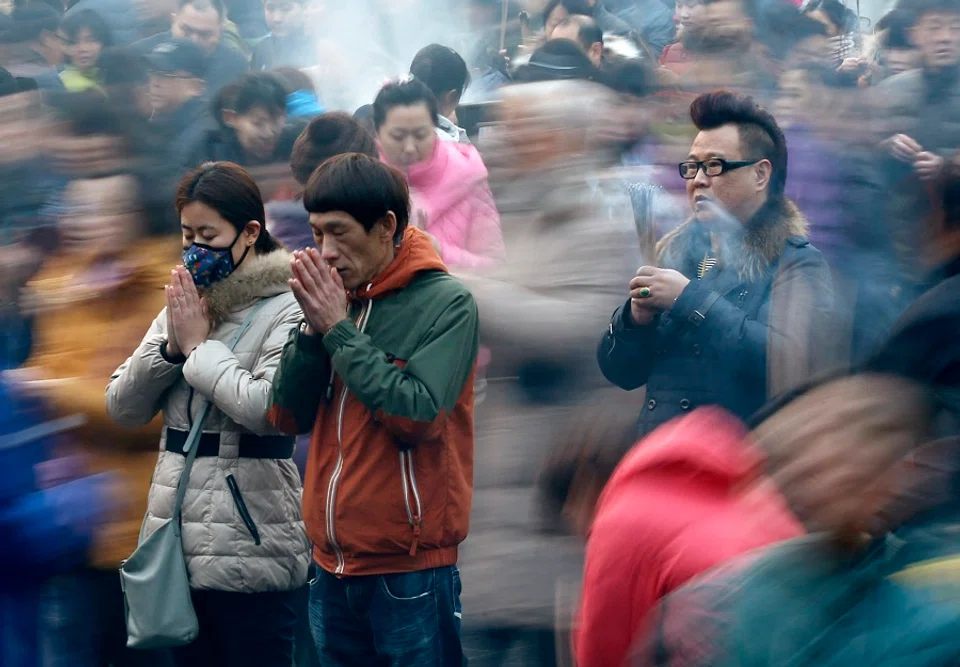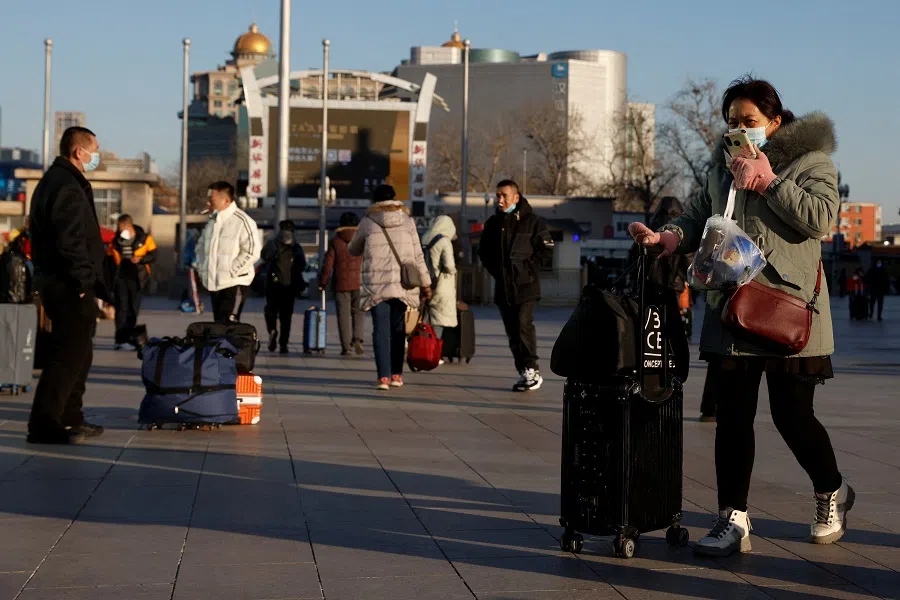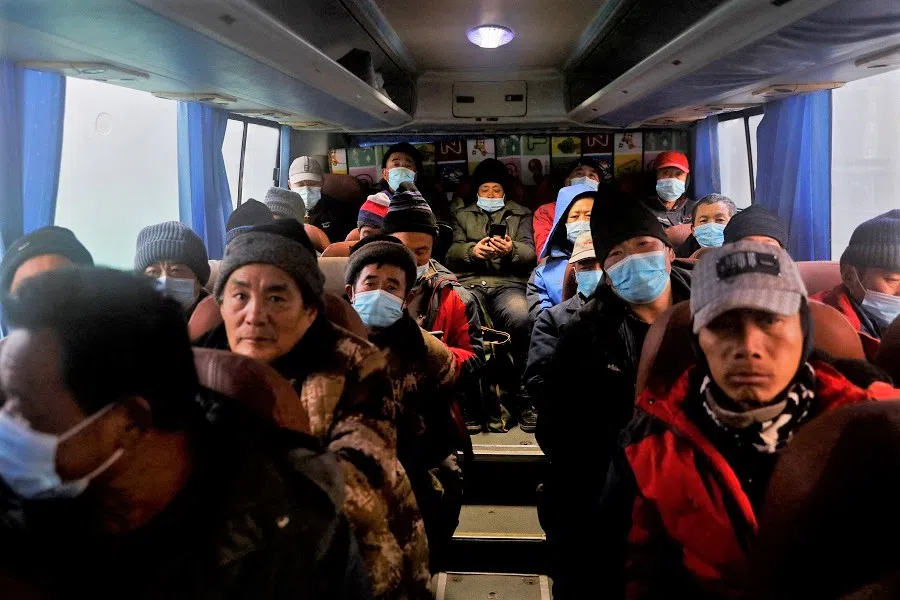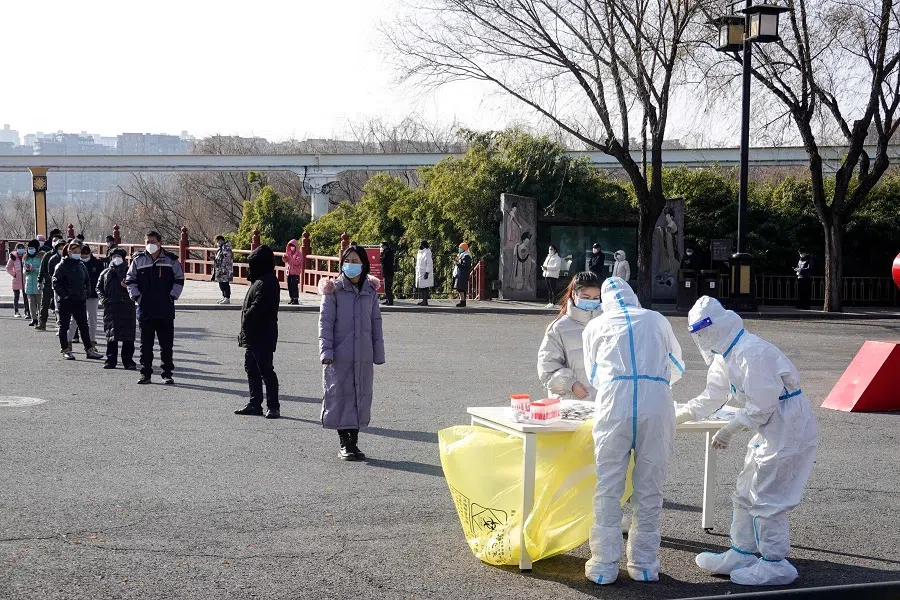New Great Wall of China against Covid-19 built with flesh and blood of the little people
Musing that it will be a muted Chinese New Year celebration this year for migrant workers and those struggling to make ends meet, Lorna Wei asserts that Covid-19 has changed the lives of the people forever and in the World War III being fought, future generations must remember that it was the full cooperation and obedience of ordinary folk that won the war.

In 2012, a short story called Folding Beijing gained great popularity in China. The novelist Hao Jingfang told a magical realism story about Beijing.
In the short story, there are three types of living spaces. Five million people in the first-class living space enjoy the hours from 6 am to 6 am the next morning. Then, Beijing is folded into second-class and third-class living spaces. 25 million people of the second class enjoy the hours from 6 am to 10 pm, while the 50 million third-class people share the hours from 10 pm to 6 am the next morning. In short, five million people enjoy the best 24 hours but the rest of the 75 million people share the other 24 hours.
With strict segregation and planning, people in the first class would never get in touch with the other classes. The protagonist Mr Dao is a rag-picker in the third-class living space. In order to earn enough tuition fees for his daughter, Mr Dao has to take a risk to deliver mail across three living spaces, though he is not allowed to enter the first- and second-class living spaces.
Now, we are going to celebrate the Chinese New Year of 2022. After ten years, Folding Beijing seems to have turned into Folding Beijing 2.0. When I read Folding Beijing in 2012, I was impressed by Ms Hao's wild imagination. But when I reread her story in 2022, I wonder if she is a novelist or prophet?
The class distinctions that Covid-19 is highlighting
Covid-19 is not only a virus name but a nightmare that has lasted for more than two years. During that time, the most frequent thought that has popped into my head is: are we living in the same world?
For the first-class people, their life is as normal as before: they can celebrate Chinese New Year with their family at their fancy houses. But for the ordinary people, Covid-19 has deprived them of the annual reunion with family numbers.

The first change we have to accept is that we can no longer celebrate Chinese New Year as usual. For most migrant workers in Beijing, they cannot go back to their hometown because of the strict quarantine rules. Additional quarantine days are added at every level.
For instance, the central government calls for seven- or 14-day quarantines. But the provincial government would add another seven days. And the city or district-level governments would add another seven or 14 days. Altogether, the quarantine days are much longer than the seven-day national Chinese New Year holiday. In addition, some local governments are responsible for quarantine fees, but some local governments ask the workers returning home to pay for it. With huge costs of time and money, most people have no choice but to stay at their rented houses in Beijing.
For the first-class people, their life is as normal as before: they can celebrate Chinese New Year with their family at their fancy houses. But for the ordinary people, Covid-19 has deprived them of the annual reunion with family numbers.
The second change we have to face is that we are indeed living in a different world, especially in Beijing.
On a worldwide scale, most job markets are severely affected by Covid-19. It is extremely difficult and challenging to get a decent job and earn enough money for living expenses nowadays. Many people get fired or have their salary cut, and have to take part-time jobs.

In mid-Jan 2022, the hardest worker, as well as the most pitiful Covid-19 infected person, Mr Yue, impressed the whole nation. According to the epidemiological investigation released by Beijing Healthcare Commission, Mr Yue took part-time jobs in 20 different venues for 18 days, and most of his work was done at midnight or early morning.
Those at the bottom struggling to cope with effects of the pandemic
In an interview with a journalist of Haixia City Newspaper, Mr Yue said that as a part-time porter, he carried sandbags and cement bags for factories. He was able to earn 1 RMB (about S$0.20) for 1 bag of sand (30kg) or cement (50kg). If he was lucky enough, he could be paid three RMB if he moved the bag to the third floor of the building. Mr Yue usually did the laborious work from 11 pm in the evening to 4 am in the early morning, and he once even earned as much as 200 to 300 RMB.
In contrast, the celebrity saleswoman of e-commerce Wei Ya (Viya) evaded about 700 million RMB tax from 2019 to 2020, and she had to pay a sky-high fine of 1.341 billion RMB in December 2021. The fine is just a fraction of her annual income, and only God knows how much she has earned in the past two years.
As for the Winter Olympics, I don't even feel that it's approaching. Maybe this is a privilege reserved for the first class.

People in the second and third classes in particular have been suffering under the yoke of Covid-19. In early Jan 2022, a pregnant woman in Xi'an lost her baby because the hospital refused her entry in the name of epidemic prevention and control. Pet owners may lose their beloved pets as seen in the Shangrao incident. Numerous nucleic acid tests are conducted and facial masks have become daily necessities. Hotels are taking care of people in quarantine instead of travellers. Due to Covid-19, we're experiencing a silent and brutal World War III.
As for the Winter Olympics, I don't even feel that it's approaching. Maybe this is a privilege reserved for the first class. I am struggling as Mr Dao did to leave the third class and squeeze into the second class. But please tell further generations that it is the ordinary people who won World War III against Covid-19. Our unconditional cooperation, support and obedience kept the virus out of China, and we built the new Great Wall with our flesh and blood. The first-class people may lose the opportunity to travel or watch the Olympic Games, but we are struggling to survive.
Related: China's zero-Covid era to end after Chinese New Year? | Chaos in Xi'an: From zero-Covid to 'zero cases in communities' | Lessons from Xi'an: Why there is no one-size-fits-all solution to Covid-19 | China's desperate measures to avert a looming economic crisis | Animal protectors and feminists hindering pandemic work in China?


![[Big read] When the Arctic opens, what happens to Singapore?](https://cassette.sphdigital.com.sg/image/thinkchina/da65edebca34645c711c55e83e9877109b3c53847ebb1305573974651df1d13a)


![[Video] George Yeo: America’s deep pain — and why China won’t colonise](https://cassette.sphdigital.com.sg/image/thinkchina/15083e45d96c12390bdea6af2daf19fd9fcd875aa44a0f92796f34e3dad561cc)